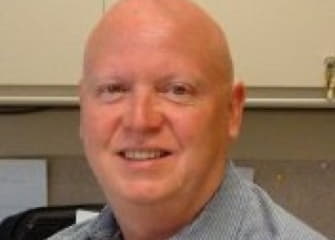
James Barry, Ph.D.
InspireMD, Inc. (NYSE MKT: NSPR), a leader in embolic prevention systems (EPS), neurovascular devices and thrombus management technologies, today announced the appointment of James Barry, Ph.D. as President and CEO effective immediately. Prior to this appointment, Dr. Barry served as InspireMD's Chief Operating Officer since July 2014 and has been a member of the Company's Board of Directors since January 2012. He replaces Alan Milinazzo, who previously announced his decision to step down as Director, President and CEO in January 2016. Mr. Milinazzo will continue to serve as an advisor to the Company.
Dr. Barry brings more than two decades of experience in the medical device industry. For more than 18 years, he held senior roles at Boston Scientific Corporation. Dr. Barry initiated and oversaw the development of Boston Scientific's Taxus™ stent which quickly became the number one selling drug eluting stent worldwide. He also oversaw the development of the technology that is employed in the Synergy™ Everolimus-Eluting Stent System.
Sol J. Barer, Ph.D., Chairman of InspireMD, commented, "We are extremely pleased to name Dr. Barry as President and CEO. Jim brings an invaluable set of capabilities, relationships, and experience in line with our efforts to pioneer and commercialize new device technologies that leverage our proprietary MicroNet™ platform. Jim is well-versed in the Company, as a Board Member and in his previous role as the Company's Chief Operating Officer, where he led initiatives to realign the organization around corporate strategic objectives, such as the transition into the carotid and neuro interventional markets, and also to design, develop, obtain regulatory clearances, and begin commercial activities for CGuard™ EPS."
Dr. Barry commented, "I am excited to take on the challenge of driving broad clinical and commercial acceptance of our CGuard™ technology. We have a growing body of clinical evidence that supports the therapeutic benefits of CGuard™, which has been well received so far by the clinical community. We are now well focused on bringing that innovative success to gaining commercial traction. I look forward to ongoing, targeted initiatives with our distributor partners, including Penumbra, to develop broad based markets where our products are of routine clinical use. Finally, I am delighted to continue to serve with and further build around the focused, dedicated and talented team of InspireMD."
In addition to serving as a Board Member of InspireMD, Dr. Barry serves on a number of Advisory Boards including the College of Biomedical Engineering at Yale University, the College of Sciences at University of Massachusetts-Lowell, and the Massachusetts Life Science Center. Dr. Barry holds a Bachelor's Degree in Chemistry from St. Anselm College and a Ph.D. in Biochemistry from the University of Massachusetts-Lowell.
About CGuard™ EPS
The proprietary CGuard™ Embolic Prevention System (EPS) uses the same MicroNet™ technology featured on the MGuard™ and MGuard Prime™ coronary Embolic Protection Systems. The CGuard™ EPS is designed to prevent peri-procedural and late embolization by trapping potential emboli against the arterial wall while maintaining excellent perfusion to the external carotid artery and branch vessels.
MicroNet™ is a bio-stable mesh woven from a single strand of 20 micron Polyethylene Terephthalate (PET).
CGuard™ EPS is CE Marked and not approved for sale in the U.S. by the U.S. Food and Drug Administration at this time.
About InspireMD, Inc.
InspireMD seeks to utilize its proprietary MicroNet™ technology to make its products the industry standard for embolic protection and to provide a superior solution to the key clinical issues of current stenting in patients with a high risk of distal embolization, no reflow and major adverse cardiac events.
InspireMD intends to pursue applications of this MicroNet™ technology in coronary, carotid (CGuard™), neurovascular, and peripheral artery procedures. InspireMD's common stock is quoted on the NYSE MKT under the ticker symbol NSPR.














